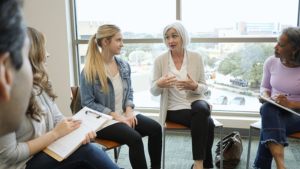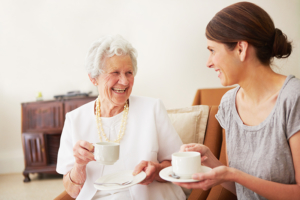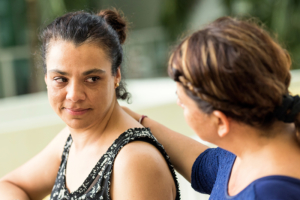 When you need to work together in caring for elderly parents, even the closest of siblings may find themselves in conflict. Stress levels and emotions are, of course, running high. Add to this your past history and family dynamics, which have a tendency to resurface during stressful times, and it is easy to understand how challenging this stage in life could very well be for each of you.
When you need to work together in caring for elderly parents, even the closest of siblings may find themselves in conflict. Stress levels and emotions are, of course, running high. Add to this your past history and family dynamics, which have a tendency to resurface during stressful times, and it is easy to understand how challenging this stage in life could very well be for each of you.
The most frequent areas of contention among family members include money matters, differing viewpoints on medical treatments or living arrangements, and an unfair balance of tasks related to caregiving, just to mention a few.
On occasion, regardless of how hard you try, you and your family members are simply unable to arrive at an agreement on how to best care for aging parents. An impasse like this is actually quite typical, frequently stemming from challenging family dynamics and unresolved conflicts. Nonetheless, there is a remedy many families are unaware of which can be exceedingly helpful: enlisting assistance from an elder mediator.
An expert experienced in conflict resolution, an elder mediator provides an unbiased, third-party voice to family meetings. She or he can help defuse increased emotions and outbursts and steer the dialogue in a manner that leads to an outcome that all parties can accept.
Elder mediator Susanne Terry explains, “Most of the time siblings want what’s best for the parents. They just look at it in a different way. Our goal is to help them figure out what their common interests are, so they can work together to find solutions.”
Different from family therapy, which helps families work through issues little by little over an extended period of time, elder mediation is a targeted, condensed process that usually brings about an agreeable outcome in only a few sessions.
Elder mediators give siblings the chance to both offer input and listen respectfully to one another. The aim isn’t only to determine the most favorable outcome for the senior parents, but to help family members maintain good relationships with each other during the process.
When exploring elder mediation options, there are lots of questions you should ask:
- What is your education, training, and background?
- What amount of experience do you have in our specific situation?
- Are you a member of the Academy of Professional Family Mediators (APFM) or other professional associations?
- Exactly what are your fees?
To find an elder mediator in your area, visit APFM’s mediator directory. Once you and your siblings agree on the very best path forward in taking care of your aging parents, connect with Responsive Home Care. We will be pleased to provide a free in-home assessment to talk about exactly how we can help make sure all their care needs are completely met. Contact us any time to learn more.


 When you need to work together in caring for elderly parents, even the closest of siblings may find themselves in conflict. Stress levels and emotions are, of course, running high. Add to this your past history and family dynamics, which have a tendency to resurface during stressful times, and it is easy to understand how challenging this stage in life could very well be for each of you.
When you need to work together in caring for elderly parents, even the closest of siblings may find themselves in conflict. Stress levels and emotions are, of course, running high. Add to this your past history and family dynamics, which have a tendency to resurface during stressful times, and it is easy to understand how challenging this stage in life could very well be for each of you.








